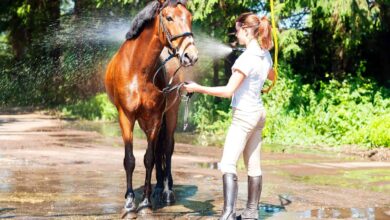By Al Badia Magazine – where equine wellness meets performance excellence.
In the demanding world of equestrian sports, maintaining a horse’s health and stamina requires far more than just good training and a balanced diet. One of the most crucial yet often overlooked aspects of equine care is the presence of mineral salts, also known as electrolytes. These essential nutrients regulate the body’s most important functions — from muscle coordination to hydration and nerve communication.
When horses perform under high temperatures or during intensive training sessions, they lose significant amounts of electrolytes through sweat. This loss can quickly lead to fatigue, dehydration, and reduced performance. Ensuring proper electrolyte balance is not merely a supplement—it’s a foundation of equine health. Check more information on trusted equine nutrition resource.
Why Electrolytes Matter
The key electrolytes that impact horses include sodium, potassium, chloride, calcium, and magnesium. Each plays a distinct yet interconnected role in maintaining the body’s internal balance.
- Sodium and Chloride regulate fluid balance and prevent dehydration.
- Potassium supports proper muscle and heart function.
- Calcium strengthens bones and is crucial for muscle contraction.
- Magnesium aids nerve function and helps prevent muscle tremors or stiffness.
A deficiency in these elements can cause visible symptoms such as muscle cramps, irregular heartbeat, fatigue, and even decreased appetite. For sport horses, these imbalances may translate into slower recovery times and inconsistent competition results.
Signs of Electrolyte Deficiency
Trainers and horse owners should watch for key signs such as excessive sweating, weakness, dark urine, or dull coat appearance. These may indicate that the horse’s body is struggling to maintain fluid and electrolyte levels. Regular hydration and electrolyte supplementation, especially during hot climates or long rides, are essential for prevention.
Best Practices for Maintaining Balance
Providing free access to clean water is the first step. In addition, offering salt blocks or specialized electrolyte powders ensures horses can replenish minerals naturally. During training or after events, liquid electrolyte solutions can restore balance faster and reduce the risk of dehydration.
At Al Badia Magazine, we emphasize that equine health is about harmony — nutrition, hydration, and rest must work together. For horses competing in endurance, polo, or show jumping, maintaining electrolyte balance can mean the difference between exhaustion and peak performance.
Conclusion
Just like athletes, horses rely on electrolytes to stay at their best. Understanding the science behind mineral salts enables trainers and breeders to care more effectively for their horses, ensuring longevity, resilience, and optimal performance.
To explore more about equine care and performance, visit Al Badia Hore Section for expert insights and training advice.








